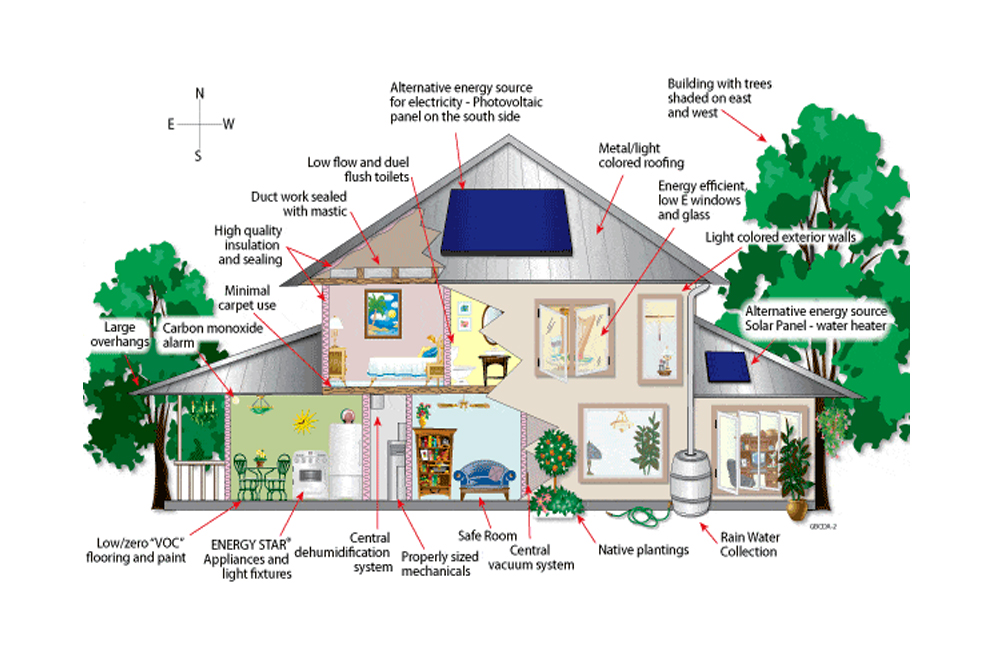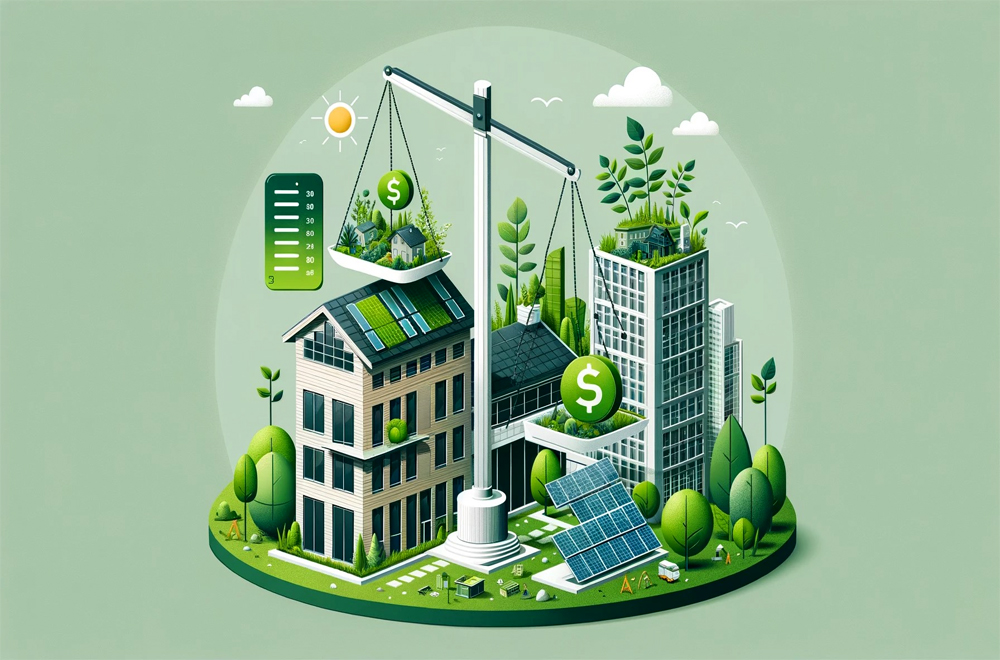Construction owners deal with a lot of different obstacles in their profession. From competitors to seasonality, they have a lot of factors to consider when taking on a project. To help with the monetary factors, construction companies look into different forms of financing to ensure a project can be completed from start to finish without being held up. The worst thing that can happen in a project is not having the financing to finish it properly, resulting in a loss for the construction company and the client.

Table of Contents
ToggleConstruction Financing Basics
Construction loans are a type of bank-issued financing that is short-term and created for the purpose of financing a new home or other real estate project. These loans are not like mortgages. A mortgage is used to purchase the finished product and is a long-term home financing option. Construction loans are what are procured to get the land and build the house from the ground up, before the long-term financing.
How Construction Loans Work
Anyone who is investing their time and money into a construction project can apply for construction financing. Loans can be procured by an individual homeowner, small business owner, or contractor for the use of a construction project.
If the land is already owned, the equity in the property can be used as a down payment for the construction loan. Once the construction is completed, the term usually ends for the loan. At this point, the construction loan can be refinanced as a mortgage, or a new loan can be applied for.
Even though monthly payments are required for a construction loan, the bank may only require interest payments during the construction phase. The payments and terms will have to be discussed with the financial institution.
Construction loans can also be used for more than just the construction of the property. The loan can be used for the equipment, building materials, and for the hiring of workers to build the project.
What You Need To Know About Construction Loans
When taking on a construction loan, there are a few things you need to know about them:
New Construction: If you are someone who is looking to fund the building of a new home for yourself or someone else, construction loans for new construction begin as short term financing. Any construction company or homeowner who wants a custom-built project often turn to construction-style loans.
Down Payment: Expect to pay a significant amount for a construction loan. These loans often require at least 20-25% down for the total project cost. Pre-owned land may be able to substitute the requirement for the large down payment if you are willing to use the equity in the land.
Application Process: A part of the application process for a construction loan is the ability to provide the details of the construction project. You will need to be able to provide the financial institution with the total amount of funding required, details about the construction professionals, project timeline, floor plans and construction drawings, material costs, and the cost of labor for the project. The more information you have for the bank, the easier the application process can be.
Paperwork: In the past, finding lenders who offered construction loans online was almost impossible. If you know that you want to apply for a construction loan, it might be worth heading to your bank and applying in person. Many of the local banking institutions know the construction market in the area and can help you with creating the application, letting you know what you are going to need.
Types of Construction Loans and Financing
There is more than one type of construction financing available when looking to procure financing. Understanding the different types of loans and financing can make it easier to apply for the right construction loans.
- Construction Mortgage Loans – This is a loan that can be used to finance the purchase of land or the construction of a home on the land you already own. The loans are typically structured so that the lender pays a percentage of the completion costs. The rest is dependant upon the builder and client to pay the rest.
During construction, the lender releases payments in a series called “draws.” Lenders often require inspections between draws to see that the project is on schedule and going according to plan. The borrower of the loan is required to make payments during the construction process.
Construction Mortgage Loans are different than a term loan. Construction Mortgage Loans require that the entire loan be paid off at the completion of the project. Many of these loans have short terms – common terms are often a year long. - Construction-to-Permanent Loans – This is also called a CP loan and is another option for financing the construction of a new building. CP loans offer extra convenience to the borrower by combining two different loan types in a single loan process.
During construction, CP loans only require interest payments on the outstanding balance. The rate is adjustable and determined by the lender and prime rate. The prime rate is a benchmark that is widely used on federal funds rates, set by the Federal Reserve.
Once the construction phase of the project is over, CP loans convert to a standard 15- to a 30-year mortgage with full interest and principal payments. The advantage of CP loans for small business owners and homeowners is that they don’t need a second round of financing when the construction phase is over. They can immediately go into the second phase of financing without the requirement of closing on multiple loans during the project. - Commercial Construction Loans – If you are thinking of a larger construction project, such as a multi-family home, apartment building, or retail units, a Commercial Construction Loan is probably right up your alley. Lenders for modern Commercial Construction Loans consider these projects to be higher risk, often requiring the developer to shoulder most of the risk by financing up to 90% of the project on their own. Most of these projects require a lot of cash on hand during the construction process.
Why You Need A Construction Loan or Financing
These are the most common reasons for seeking out a construction loan or financing:
- Purchasing equipment and materials
- Expanding a company’s facility – small businesses may seek funding to expand their locations or to remodel an existing place
- Hiring and training employees – Funds from a construction loan can be used to hire new employees for construction purposes. You can also finance the education and training costs for those employees with the loan.
- Damage or disaster expenses – offices and commercial properties can end up damaged by unforeseen circumstances or disasters. Construction loans can be used to make the necessary repairs to the building to fix damages.
How to Get a Construction Loan
Getting qualified for a construction loan can be complicated and a lot harder than traditional mortgages. Most lenders consider construction loans to be a riskier form of lending, as there is no asset to use for securing it. That is why if you already own the land in which the building will be constructed, the lender may be more willing to use it as collateral and finance the new home’s construction.
What Lenders Often Require for a Construction Loan
Depending on the lender you choose, they may have different requirements for your construction financing. You can expect for the following to be required:
- Down payment – Just like any other form of financing, a lender is likely to require a down payment or the use of collateral for the loan. Because of the risk that is involved in these types of projects, you can expect that a lender will want some reassurance before giving any money.
Strong credit – Lenders are more likely to lend money to people who have a strong personal credit history. If you have a business, they will want to see the business’s credit history and your FICO information. - Financial documents – Prospective lenders analyze current and past debts, payment history, and any other loans or liens you may have on the property or under your name. Most institutions want to see financial statements, tax returns, and proof of other assets.
- Good reputation – The reputation of the builder, especially if the builder is seeking financing, is important. Bulders who have a habit of not finishing projects or even have a poor work history are likely to have a harder time finding financing for projects. If you seek out financing for a project, you will want to see what the builder’s reputation is before getting financing. You will need a builder with a great track record.
- Detailed plans – Lenders want to see what they are financing. Most require you to disclose the details of the project, including the detailed plans. The plans let the financial institution understand what is to be financed. They often require the plans ahead of time to know that the project is on task once they begin the financing process.
- Appraisal – The appraisal process is hard when there isn’t something to appraise. Construction lenders work with appraisers who will analyze the project, often comparing it to other projects on the market. These appraisers will review your plans and draw conclusions about how much the project could be worth once completed. A good appraisal can often help the outcome of getting a construction loan approved. You can hire someone to do one for you, but your lender will likely insist on having their own done.
Steps to Construction Financing
Before making any concrete (no pun intended) decisions on your construction financing, you need to consider the options that are in front of you. You will have to rely on banks, online lenders, brokers, and contractors that can help you make difficult decisions during the stressful process of completing a construction project. Make sure your partners in this venture are dependable, or else you could be looking at added delays or even a project that does not end up completed.
Shop around before you sign on the dotted line for your financing. A lender should offer you all of the options you will need and not just for construction loans but also for long-term lending. While some lenders won’t provide construction loans, they may offer longer-term loan options. Always start with your personal banking institution or other credit unions. You are likely to get the best rates and terms when banking with someone you already have business with.
Still not sure how to handle the process? Seek out help from the local Chamber of Commerce or talk to a construction loan broker. These individuals can give you information about who to talk to in your area for a construction loan. A construction loan broker is a professional and expert in construction loans, which can save a lot of hassle. These professionals also know the requirements of construction loans. They can explain to you the options you have in terms of construction loans and help you find what fits your construction budget.
Lenders and Experience
Lenders have different levels of experience, and they also have different abilities to help you with your construction loan. Not all lenders or construction loans are created equal. You need to do your due diligence to ensure that they can provide you with the lending options you need and that they are qualified to do so.
You have the right to ask these lenders for references, such as developers that they have worked with in the past. Hearing first hand from another client or developer might make it easier to understand what it is like working with that particular lender. If the lender doesn’t want to provide you with references, it might be time to look at different lenders. You should be shopping around for the right terms, rates, and ease of use when looking for a construction lender, so one bad seed isn’t going to condemn your project.
Your community is a great place to start when looking for lending or even lenders with experience. Lenders in the area know the potential of properties within a given area. If the lender does specialize in construction loans, they should already know this information. It is part of their job to know how the market is in the given community they are in.
If you are just getting your feet wet with the idea of lending and construction, talking to different lenders about what they can offer is a great place to start. Many lenders may even have preferred developers and construction companies that they can recommend. This might be able to save you from doing too much digging – getting your project up and running in very little time.
Why You Need to Finance a Construction Project
Someone can rarely bankroll a construction project on their own. There usually just isn’t enough cash on hand to accommodate all of the costs for materials, land, manpower, and other construction industry requirements. That is why construction financing is a popular way to make these construction plans happen.
Many people who want to build their homes from the ground up seek out financing that they will be able to turn into a traditional mortgage. Seeking out lenders who specialize in these types of loans in your community can make the dream home process run more smoothly. After all, dream homes are meant to have everything you want – even a 30-year mortgage.
The way in which you choose to finance your project will depend on numerous factors, such as your profile as a borrower, the construction company, the state you live in, FICO scores, and how much you have to put down. For some, it might be worthwhile to go ahead and work on securing the land before getting a construction loan. Especially if you plan on putting a home on this land, you might be able to benefit from using the land as collateral for your construction loan.
No matter what you do, the type of lending you choose, or the property you are looking to finance with a construction loan, the best piece of advice we can give is to ensure that you have your plans in order before seeking out definitive financing. Lenders and even brokers want to see exactly what your plan is before they begin any of the paperwork.
Make sure you use this guide when looking for a broker or financial institution to provide you with a construction loan. Even a construction team or developer might know exactly what the process entails and will be willing to help you make sure you have all of your information straight and ready to go when setting up a meeting to get started with the financing process. It is important to remember that when you dream, you can achieve. If at first your financing doesn’t get approved, find out what you need to do to improve your odds and try again. Finding the right lender to meet your needs will make the process a whole lot bearable in the long run!






